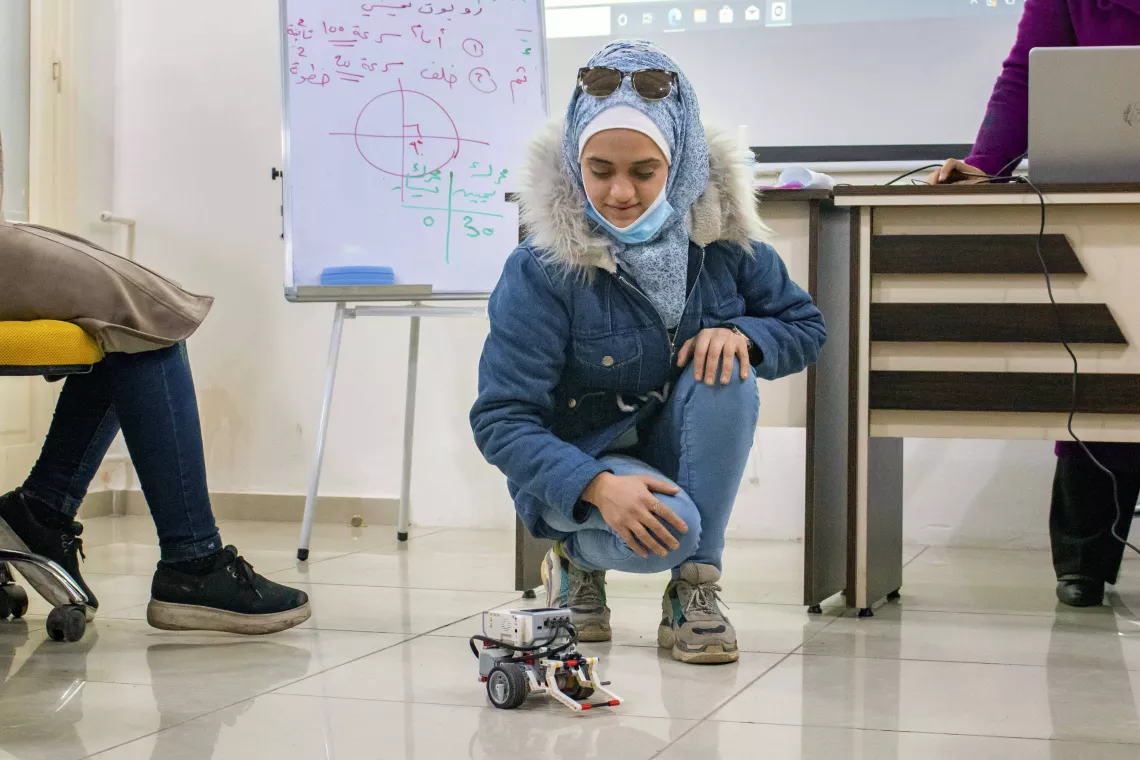Signing the language of science
Dr Susan teaches robotics to girls with disabilities in Aleppo

Aleppo city, northwest Syria, January 2022 - “These young girls have all they need to succeed in life, and they just need an opportunity to express their potential,” said Dr Susan. She is teaching a robotics course to a group of nine girls with disabilities at the UNICEF -supported centre in Aleppo city. Robotics refers mainly to the design, programming and use of machines (robots) to perform tasks done traditionally by human beings, relying strongly on artificial intelligence. Dr Susan has studied both sign language and information technology. Her research addressed the use of artificial intelligence to convert sign language into text and she pitched the idea of running a course on robotics at the centre in 2021. The course is currently run as a pilot project with the potential for conducting similar courses in the future. The girls have also taught Dr Susan some of their unique sign gestures, helping her overcome obstacles they face in communicating with each other.
“Some people think it’s nearly impossible to teach such a complicated course in sign language. It’s quite the contrary,”

“I have met the friendliest and most intelligent young girls in my class.”
The STEM programme (Science, Technology, Engineering and Math) provided at the centre aims at empowering adolescent girls and young women to enter new fields. At the centre, young boys and girls benefit from training workshops on life skills, literacy eradication, languages, robotics, artificial intelligence, and technical and vocational training. Youth clubs have also been established, allowing youth to discover, research and engage in innovative sciences. The centre enables youth to develop and implement social and civic engagement initiatives, benefitting their communities and themselves.






